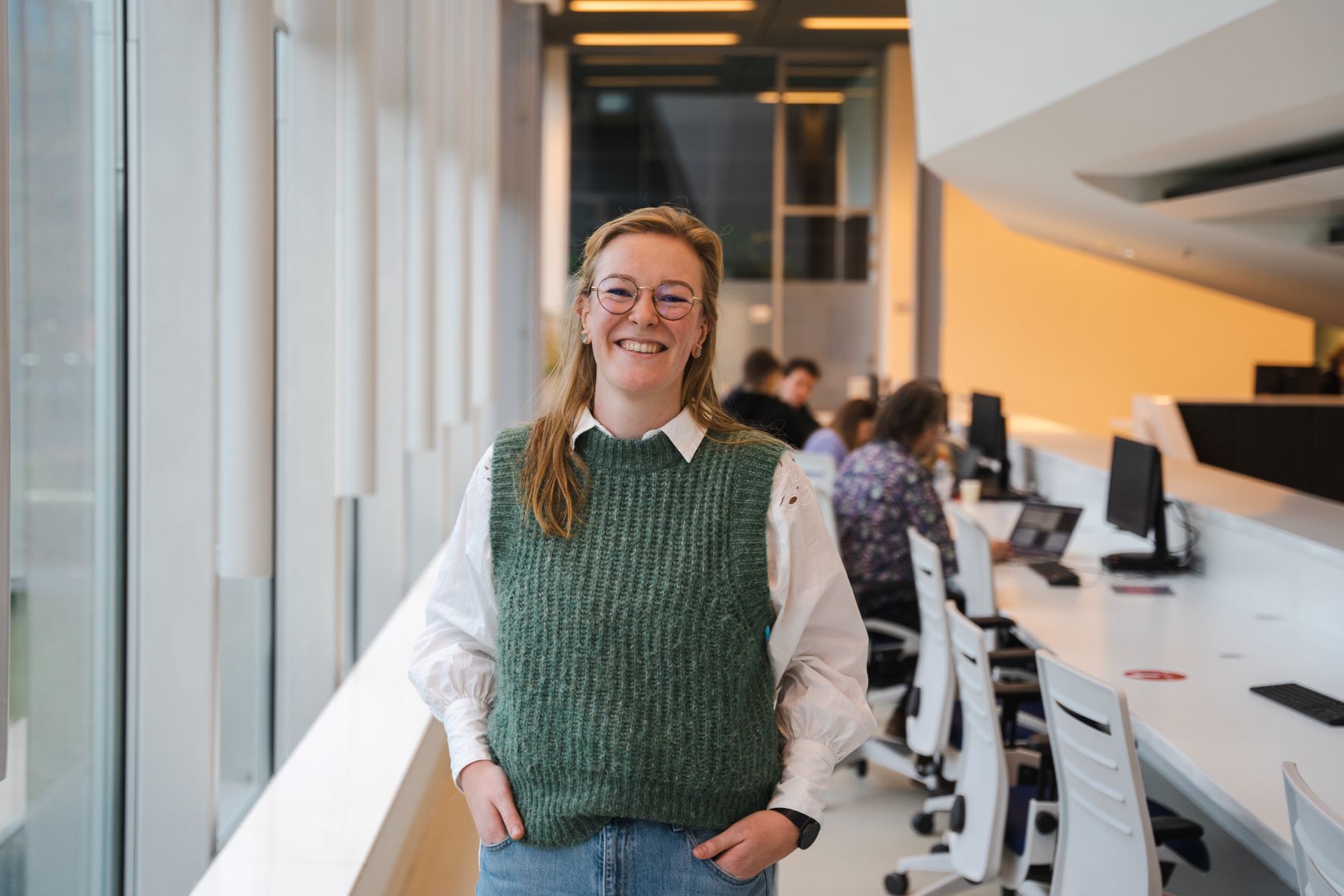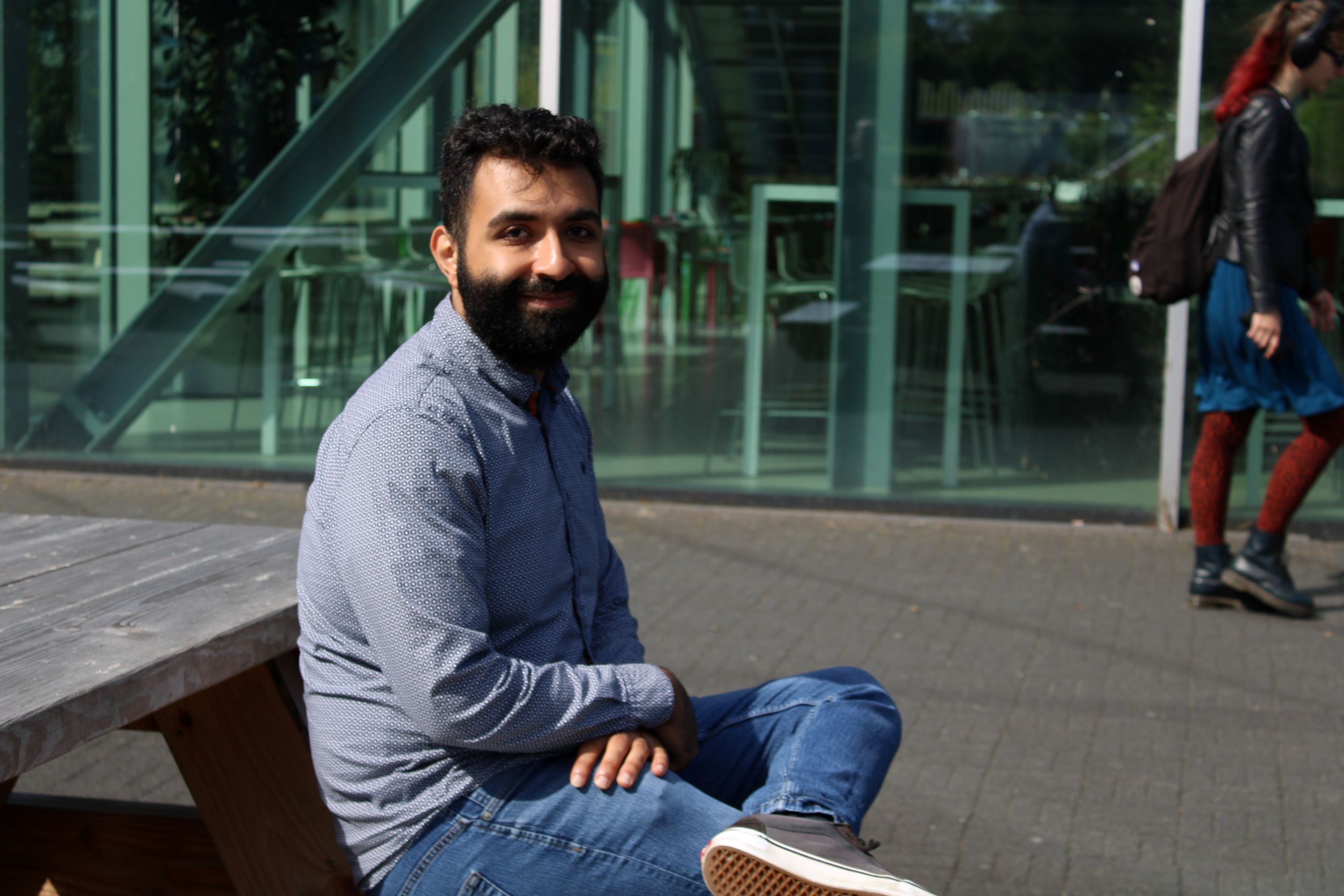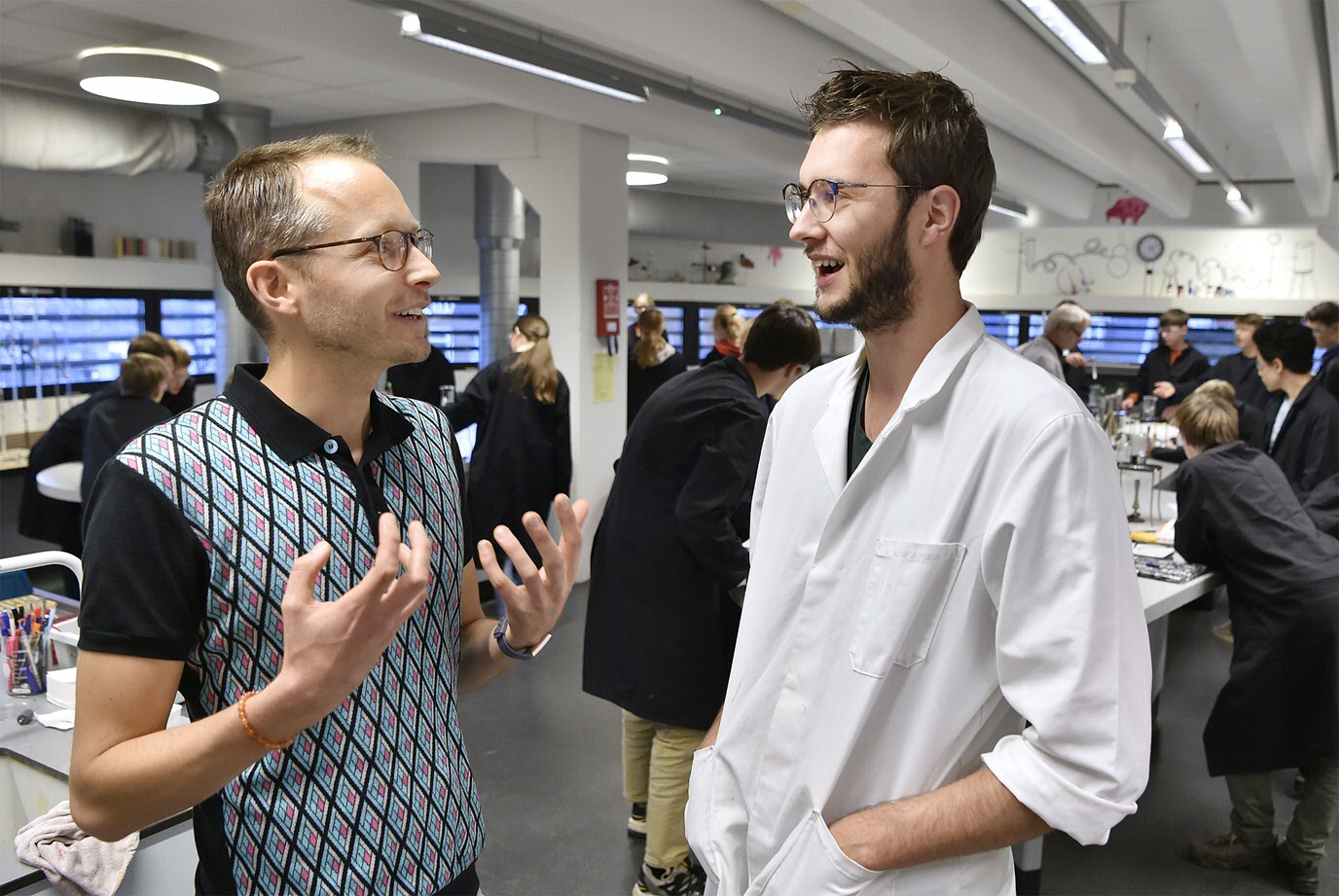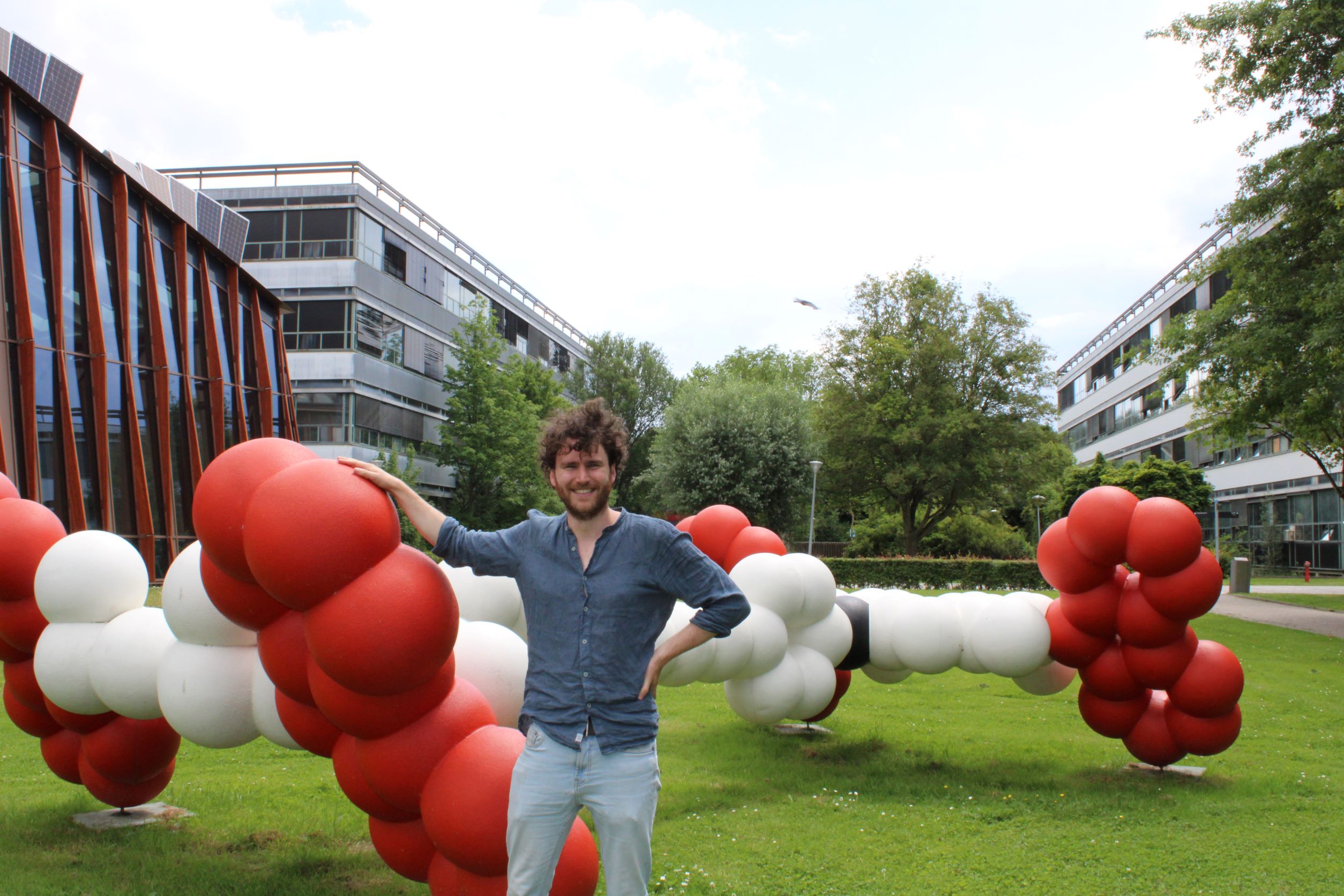track Education
The Education track is only available in Dutch. Students participate in both courses of the Master Science Education and Communication and courses of the Teacher Training Programme.
Year 1 consists of courses in both the Teacher Training Programme and three courses of the Science Education and Communication programme, which are shared with the Communication track. The first year starts with a course of the Teacher Trainer Programme, where coursework is combined with an internship. In addition to this course, students take the course 'Research Methods in Science Education and Communication' to prepare themselves for a research project in science education, which they will conduct after this course. Students can also choose to do a research project in their own STEM discipline.
In semester 2 students combine their research project with the course 'Skills in Science Communication' where the fundamentals of science education and communication are addressed. Students also design science education products in the course 'Design for Science Education and Communication'. Both these courses are shared with the Communication track.
Year 2 consists of courses from the Teacher Training Programme, in which you deepen your teaching practice, with courses on didactics, pedagogy, learning theory and class management. You will also conduct a practical research project in science education. In these courses, lectures, assignments and internships in schools are combined.
All tracks have a joint programme, which consists of courses that address fundamental knowledge and skills regarding science education and communication. In these courses the design of science education and communication products, such as news articles, communication strategies, educational material or exhibits is addressed, as well as research skills to be able to conduct academic and practical research in the field of science education and communication. In addition to the joint programme, there is a track-specific programme.








